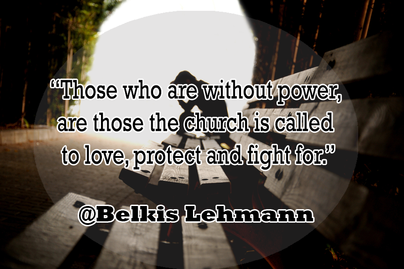 “Absolute power corrupts absolutely,” declares John Emerich Edward Dalberg Acton. On the surface it does not seem a truer statement has ever been spoken. A look through the pages of history reveals example after example of power enticing, infecting, and corrupting: from Genghis Khan, to Stalin, to Idi Amin. It is true of the secular as well as religious, of military as well as civil leaders. Yet, there is one figure that stands drastically apart from this pattern: Jesus the Messiah. Here is an individual exercising power over the elements, over sickness, over the material--even over death itself--who remained untouched by the lures of power. At the start of his ministry, Satan showed him all the kingdoms of the world and tempted him saying, “All these things I will give You if You will fall down and worship me.” His reply was simple, but emphatic, “Away with you, Satan! For it is written, ‘You shall worship the Lord your God, and Him only you shall serve.’” At the end of his life, when his disciples fought to prevent his arrest, he rebuked them saying, “Do you think I cannot call on my Father, and he will at once put at my disposal more than twelve legions of angels?” He did not call upon them however, but instead laid down His life. In the three and a half years that encompassed his ministry he did not once use his power to accumulate wealth, conquer kingdoms, or take advantage of women. How many other leaders of history, even religious leaders, can this be said of? By his life he redefined the world. He taught us that leadership is not about “lording it over” people, but about service. Instead of avoiding the weak and marginalized, he pursued them. He lived and died, not for himself, but for others. Jesus lived in perfect accordance with the Kingdom of God; a kingdom so different from those of this world that the gospel of Matthew consistently refers to it as the “kingdom of heaven”. In doing so, he laid down a radically different, not-of-this-world pattern for his followers to live lives of sacrificial service for society’s easiest victims; throughout history these have been women, children, foreigners and the poor. Those who are without power, are those the church is called to love, protect and fight for. Our country’s demographics are drastically changing. We are fast becoming a majority-minority country. This scares many people who are afraid of losing power. But it should not frighten those who follow the Nazarene carpenter. He called us to give up power, long before anyone tried to take it from us. Power is not evil; power used for self ultimately becomes such. Today use your power for others, just like our humble King. Comments are closed.
|
Categories
All
Contributing Authors
|

 RSS Feed
RSS Feed